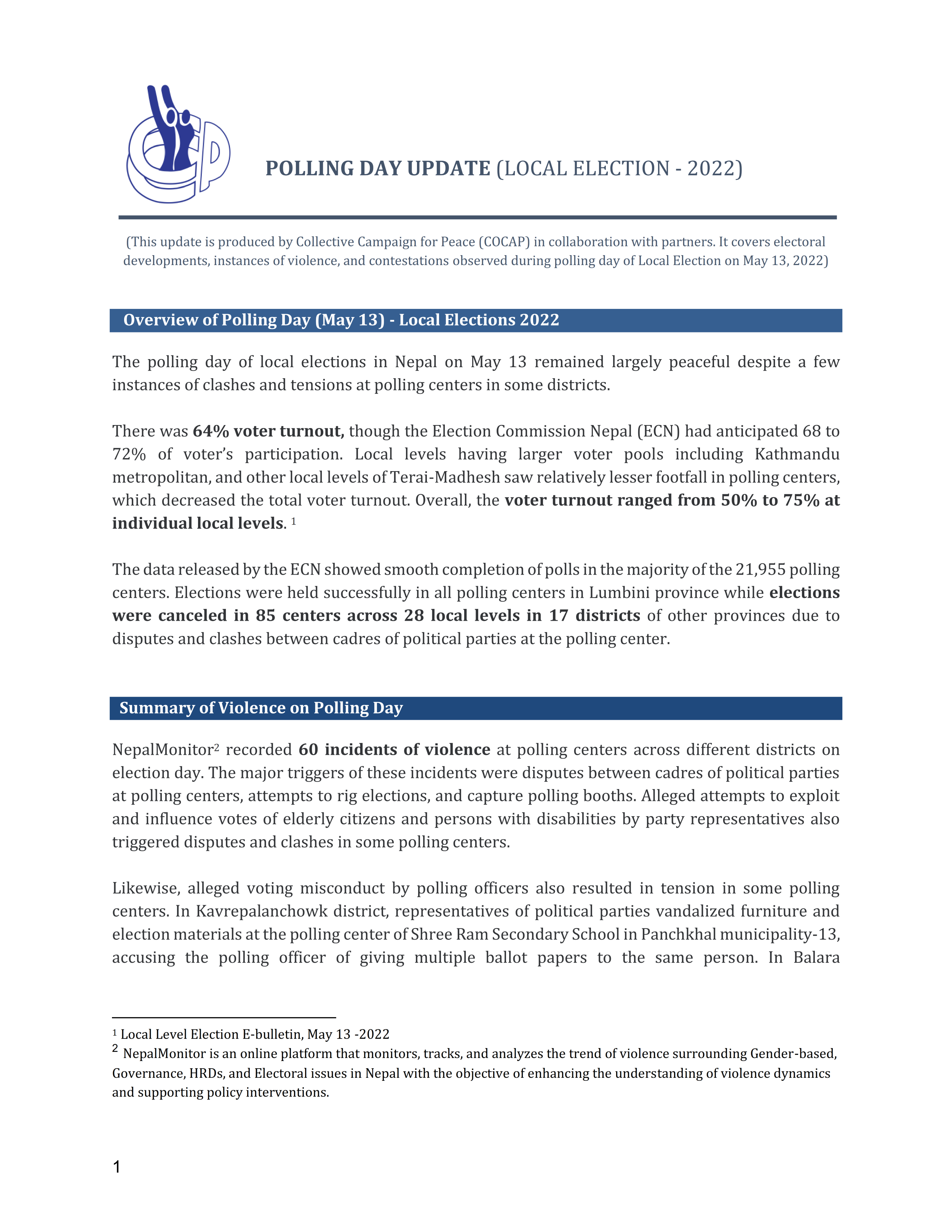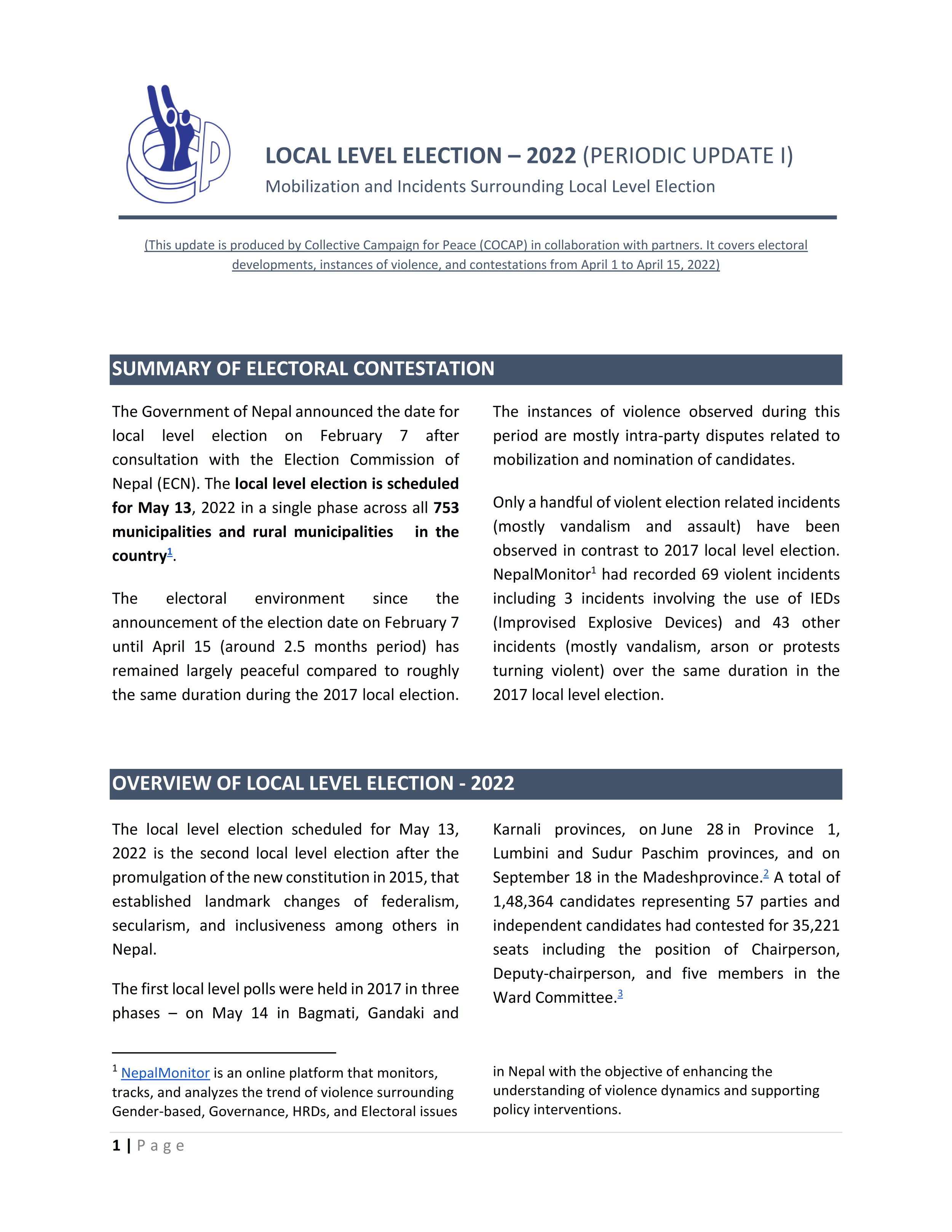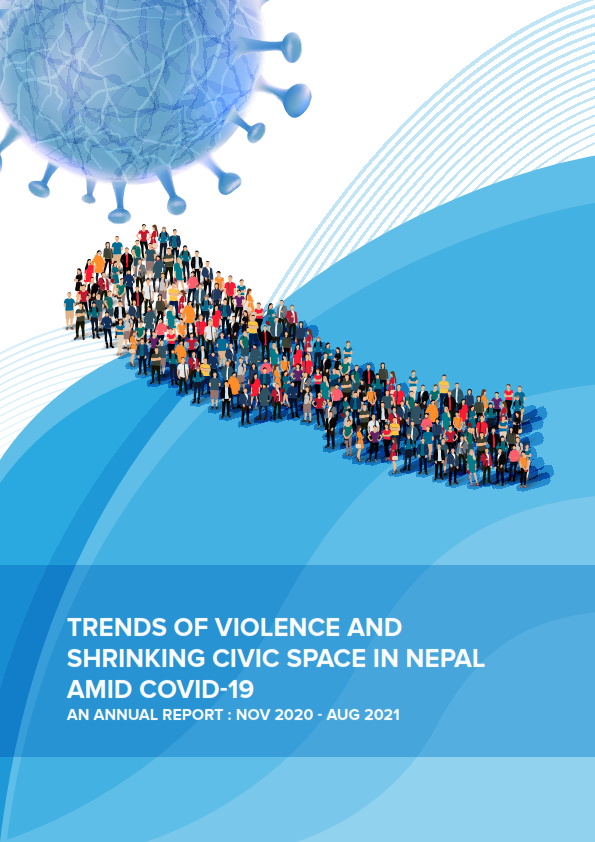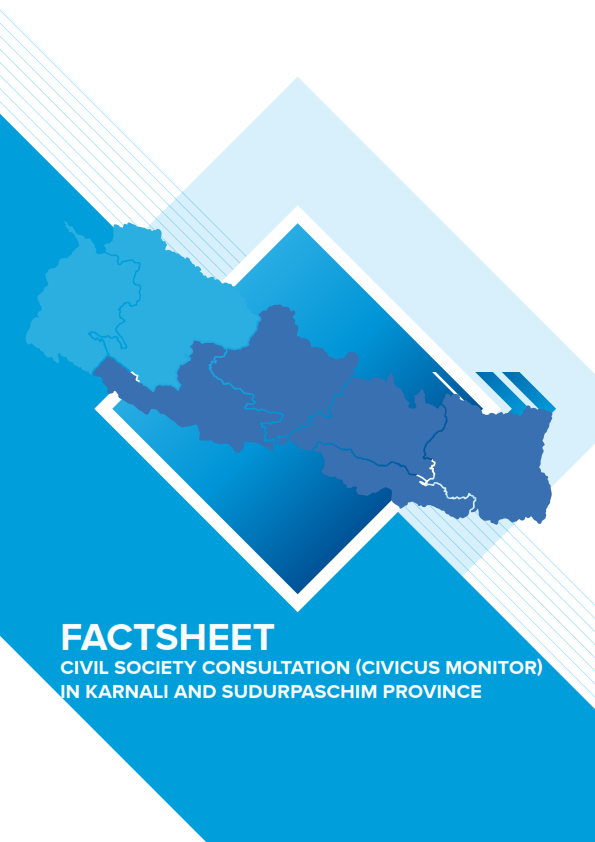Incident Reports
A journey of a thousand miles- Deepak Thapa
2016-04-21
Come next week and the anniversary of last year’s earthquake, one sure hopes that there is some soul searching going on among the individuals and institutions responsible for providing succor to all those still waiting for help.
Let’s look at the record so far on the government side. It took a full eight months after the April 25, 2015 devastation for the National Reconstruction Authority (NRA) to be set up, and almost another three months before the first person was signed onto the agreement allowing receipt of the first tranche of the promised two hundred thousand rupees to rebuild his home. Considering that the Post-Disaster Needs Assessment (PDNA) calculated the losses in houses destroyed or damaged to be more than three-quarters of a million, one can only take solace from the famous saying by Lao Tzu: A journey of a thousand miles begins with a single step.
That it took such a long time to take that first step points to an insensitivity that is truly mindboggling. Through the rains and the cold and an embargo, and now preparing for the rains once again, millions have waited patiently for the government to get its act together. And, all they have been served is platitudes and more platitudes.
Almost immoral
Soon after the earthquake, help from foreign countries began pouring in. Despite its initial incompetent response and obvious lack of capacity, not to mention the state of political uncertainty existing then, the government insisted that it be the sole recipient of all funds meant for relief and reconstruction. It even threatened punitive action against any individual or organization that ran foul of its directive. That it backtracked within days under intense criticism, and, obviously, some backroom pressure from the donor community, provided the first indication of how ill-thought-out the whole reconstruction enterprise was going to be.
Then came the fiasco over the NRA. ‘We want a non-political appointment for CEO,’ declared Ram Sharan Mahat, the then finance minister fresh off the successful donor meet that saw billions of dollars pledged. He did also say: ‘The basic qualification for the CEO will be a high level of integrity and experience.’
Integrity and experience are subject to different interpretations, and there is no point quibbling over whether Mr. A is better qualified than Mr. B or not. One does wonder though why politicians try to pretend that they will choose someone based solely on such criteria. If anyone missed it, Govinda Pokhrel, the pro-tem NRA CEO appointed by the government of which Mahat was part, narrowly lost being elected to the Central Committee of the Nepali Congress. And, by some accounts, the current CEO has a background as a CPN-UML student leader.
So much for a ‘non-political’ appointee. Not that all such posturing really matters or people even care since that is how things have always been. But, the political wrangling over which party gets to appoint its man to the top post certainly delayed the formation of the NRA by so many precious months. Thankfully, that episode is behind us and reconstruction can begin in earnest even though it was a sorry sight to see that our civil servants seconded to the NRA had to be enticed into doing their jobs with a ‘motivational allowance’ of a hundred percent of their salary. It does not seem to matter that it is almost immoral that the allowance is coming out of a fund pool meant for the poorest sections of Nepali society.
The bigwigs
The long delay in getting its act together does prompt the question of whether government action might have been more urgent had the most affected been a group other than the marginalized Tamangs. Personally, I doubt it, but that does not mean that there is no one who believes that to be the case.
Particularly, if one examines who is in charge at the NRA. The surnames of the bigwigs tell it all (with a few repetitions since there are some who figure in more than one body). The Advisory Committee consists of Oli and Deuba; the Steering Committee: Oli, Poudel, Poudel, Basnet, Khatiwada, Gyewali, Subedi, Bhattarai, Thapa, Adhikari; and the Executive Committee: Gyewali, Sharma, Parajuli, Bhandari, Shrestha, Adhikari, Adhikari. Granted that many are ex-officio positions but even for the sake of appearances, and presumably, some empathy, one or two individuals representing communities most hard-hit would have been a gesture of a government that cares.
This is equally true of the representation of women. Not one of the worthies listed above is a female despite the fact that 55 percent of the dead were women and despite the well-documented fact that they are affected disproportionately in any disaster situation and even more so when there is a high rate of male outmigration, as is the case in all the affected districts.
We can only hope that the government and the NRA will now adopt a more confident approach to reconstruction. One sign of growing maturity is the recent announcement that NGOs will also be allowed to help with the effort; rather than resorting to preserving one’s own turf in the face of a humanitarian crisis, the extension of support from all quarters should be considered in a more positive light. After all, we are all in it for the long haul—five years, according to the CEO of the NRA.
National/Online Media
Related Reports
Governance / Kathmandu
Medical education concern committee protest by banging plates and whistling
September 08, 2023
Governance / Darchula
Workers padlock school citing non-receipt of wages for more than a year
Sudurpashchim, Darchula, Naugad
August 29, 2023
Governance / Sunsari
Prohibitory order issued in Dharan, tightening at entry points
Province 1, Sunsari, Dharan
August 25, 2023
Governance / Morang
Students of Eastern College in Biratnagar on protest
Province 1, Morang, Biratnagar
August 23, 2023
Related Trend Analysis
Analysis

THE NEPAL PEACE MONITOR ANNUAL REVIEW: 2020
October 25, 2021
Human Trafficking / LGBT+ Rights / GBV / Political / Children’s Rights / Senior Citizens’ Rights / HRD Issues / Human Rights / Interpersonal Violence / Governance / Covid-19 / Civic-Space / PwD

_001.png)




